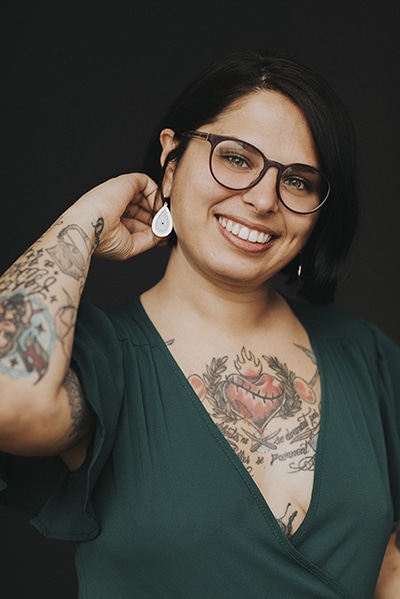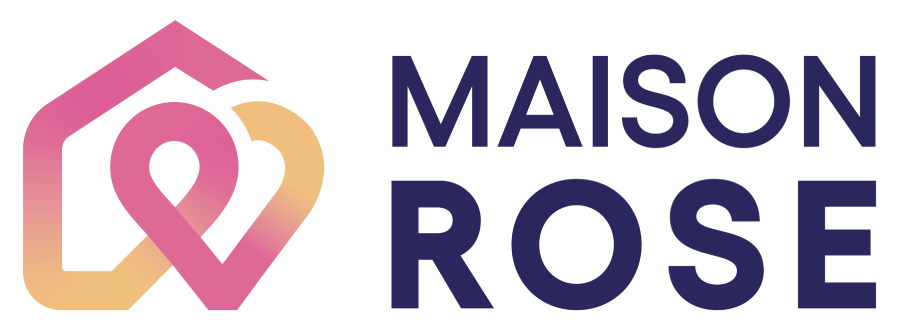
I was diagnosed stage 1b hormone-dependent in situ breast cancer at the age of 27. I am now 32 years old.
I was doing a scuba diving course. When I was putting on my wetsuit, I felt a lump at the edge of my breast. I immediately thought it was weird. I went on with my day anyway and completed my certification.
The next day, I decided to call my family doctor who has been following me since I was a teenager. The following week, I had an appointment. When I got there, she said: “Any lump in the breast is something we take very seriously. I’m sending you for a mammogram and an ultrasound.” And she gave me a referral.
The first clinic I contacted was a private clinic. I thought I would get faster service. They refused to take me because I was considered too young for them. I called back my family doctor, who referred me to the CHUM breast clinic. They didn’t ask me any questions about age and took me right away. I had an appointment the following week, three weeks after the lump was discovered.
At the appointment, they had me do the ultrasound and a mammogram. The radiologist said: “There’s no fluid in the mass, so it’s not a cyst. We’ll do a biopsy right away.” At that moment, I felt nothing: I did what I was told and tried not to think about the result. I should mention that at the time, I was an undergraduate in university, right in the middle of exams.
I asked my mother to come with me. At the appointment I was told I had breast cancer. I was asked questions about my medical history and lifestyle. I had never smoked; I didn’t drink much alcohol and no one in my family had breast cancer. But, I had been through a very difficult divorce and was in a very bad place. The cancer diagnosis came a year after. The oncologist told me that in many of his patients he saw a pattern of cancer onset during a difficult life event such as a divorce or bereavement.
During my appointment, the doctor told me he was going on vacation and that when he came back, a month later, he would perform a lumpectomy. I couldn’t imagine spending a month with a cancerous mass. In the end, he squeezed me in just before going on vacation. Four days after my appointment with him, I had surgery. It was a total of six weeks between the discovery and the removal of the mass. They also removed two lymph nodes to analyse them: the tests came back negative, so I was relieved.
I was also tested for BRCA genes and had a radioactive injection to see if there were any metastases, and luckily everything was fine.
I didn’t have to undergo a reconstruction because the surgeon removed only the tumour. They still asked a surgeon to lift my breasts a little so that there was no imbalance and for aesthetic reasons. The next time I saw my therapist, I had already undergone surgery. I have always been able to count on her and even more so on my family. My entourage quickly mobilized to support me morally; I was so lucky to be able to count on them.
I waited for months for the results of the oncotype test, which calculates the risk of recurrence. The test was sent to the United States for a full analysis. In the meantime, I had to freeze my eggs because we didn’t know what the results of the test would be. Would I ever be able to have children naturally? This question was weighing on me.
In mid-September, the results came back and they were very good: I didn’t have to do chemotherapy. My doctor was so happy to tell me that he called me himself. I did, however, have several radiation treatments that went very well.
Despite my young age, it was taken very seriously from the beginning by all the people in the public health service. Only the private clinic refused to see me, which leaves me with a bitter taste. I could have just done nothing and said to myself that statistically, there was very little chance that I would get breast cancer. That would have clearly caused the cancer to progress. Luckily, that’s not my personality, I take my health very seriously.
I must also say that I am a former employee of the CHUM: so I’m not afraid of hospitals. On the morning of my operation, the orderly who brought me into the operating room was a former co-worker. I was very emotional. I know this institution, I know the staff, I know how it works. It can be very scary for some people, and I understand that. I was treated very well. The CHUM also offers massage therapy services at a lower cost, and I took advantage of this. I received very good care: I felt I wasn’t just a number.
I was very disappointed to find out that because I hadn’t accumulated enough hours of employment insurance, I couldn’t get unemployment while I was being treated. I couldn’t work, so I had to raise funds because otherwise I would have no income to pay my rent. I was told that I could have fought my way to get unemployment but I honestly didn’t have the energy for that. I learned that the Quebec Breast Cancer Foundation offers financial assistance to those who qualify, but I found out too late.
At least I was able to access government loans and grants and work less. The whole financial aspect was difficult.
Then, the fact that the private clinic initially refused to take me based on my age was problematic.
As we know now, there is no age for breast cancer. Unfortunately, there are more and more people in their 20s who will be diagnosed. Anyone who has a request for a mammogram and/or ultrasound should have access to it, publicly or privately, regardless of age. The health care system, as a whole, should be on top of this. And for older women, having mammograms starting at age 40 to reduce the risk of late-stage breast cancer in their 50s, as a recent study by University of Ottawa researchers said, would be a way to be proactive rather than having to pay for treatment. Preventive screening should be more accessible.
When I found my lump, it was about two centimetres in diameter, smaller than a golf ball. Before cancer, I didn’t do breast self-exams but now I’ve incorporated it into a monthly routine, in addition to the annual follow-ups with the oncologist. You have to observe your breasts no matter how old you are: I tell my friends and I post on my social media.
When I finished my treatments, I went back to my family doctor and asked: “What do I do now?” She said, “Janyck, you live your life.” It’s true. There’s life before, during, and after cancer. I get anxious sometimes when it’s time for my annual mammogram or MRI, but I do my best not to let it impact my life anymore. It’s a chapter of my life, not the whole thing. Now I’m a doctoral student working on health issues. For me, it is clear that this difficult period of my life was only a chapter, not the whole of it, and I am doing my best to enjoy life to the fullest.
If you have any doubts or questions about breast cancer before, during or after diagnosis or treatment,
call us at 1-855-561-PINK so that a member of our team can guide you and answer your questions confidentially.
We are here for you.


